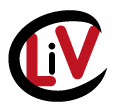Avant-Garde Poetry in Translation
Ghent University
Department of Translation, Interpreting and Communication
12th March, 2020
Ghent, Belgium
Since the 1920s avant-garde poetry has forged an unconventional path that resists categorization and questions mainstream culture. Over the years, the avant-garde has been viewed from different perspectives. It has been studied as a poetic style (Kramer 2009: 3), an aesthetic revolution (Erjavec 2015: 87), a process of experimentation (Chaitas 2017: 74), and a critique of art as it stands at the current time (Watkin 2001: 130). This conference invites us to reflect on the possibility of translating avant-garde poetry. Special focus is given to the aesthetics of the interwar period and to the neo avant-garde poetry that emerged after the Second World War. By adopting a transnational approach to the study of the avant-garde, we encourage participants to focus on any language and linguistic tradition in and outside Europe.
Translation, which can be understood as “a contextual revision of meaning” (Le Blanc 2019: 59), raises questions regarding the timelessness of the literary work and the relevance of the avant-garde not only in its original socio-political context but also to this day. In examining the possibility of translating poetry, we can also consider the different forms that translation has taken within the context of the avant-garde. For instance, poets of the concretist movement in Brasil —under the influence of Ezra Pound, developed a conception of translation that seeks to reproduce the original text without, however, respecting its meaning (de Campos 2004).
In the 1960s, the French journal Change (1968-1983) qualified translation as a transformative practice (Robel 1973). During those years, translation was associated with the notions of “openness”, “extension”, “plurality”, and “multiplication”, that were part of the critical discourse of the time (Brisset 2006: 236). Those who embraced the movement of transformationnisme saw translation as a way to unearth the hidden potential of the original text and rejected translation as an act of communication or equivalence. As seen in Gérard de Cortanze’s “transformation” (1976) of Huidobro’s poem Altazor (1931), different types of translation are possible as long as they highlight the expressiveness of the language (e.g. word-for-word translations, phonetic translations, translation-extraction).
Despite its capacity to challenge the boundaries of poetic language and form, avant-garde poetry remains largely untranslated (Lodge 1998). Indeed, poetry translation attracts little attention and occupies a tenuous position in academic textbooks. As theoreticians have argued, poetry is “the least translated literary genre” (Venuti 2011: 127) and a “disinterested activity par excellence” (Bourdieu 1993: 51).
This conference opens up new lines of inquiry in the field of translation studies, by inviting participants to explore avant-garde poetry and experiment with different translation options. Theoretical reflections and/or practical case studies can focus on one (or more) of the following subjects:
– Translations of avant-garde poetry during the beginning of the 20th century and the interwar period (e.g. Dada, Futurism, Expressionism, Surealism, Constructivism etc.)
– Translations of neo avant-garde poets in post-war Europe (e.g. Abstract Expressionism, Pop Art, Nouveau Réalisme, Neo-Dada, Fluxus etc.)
– The poetic legitimacy of the translator
– Theoretical and/or methodological difficulties in poetry translation
– Recontextualization of avant-garde poetry in translation: social relevance and impact
– Avant-garde poets as translators
Scholars at any stage of their research are invited to submit their abstracts in English or French (250-300 words) until the 15th of January 2020. Submissions should be sent to the organizers via e-mail: amaury.desart@ugent.be and christina.bezari@ugent.be. You will receive a response by the end of January.
